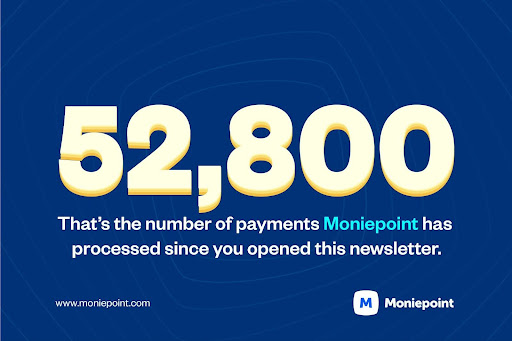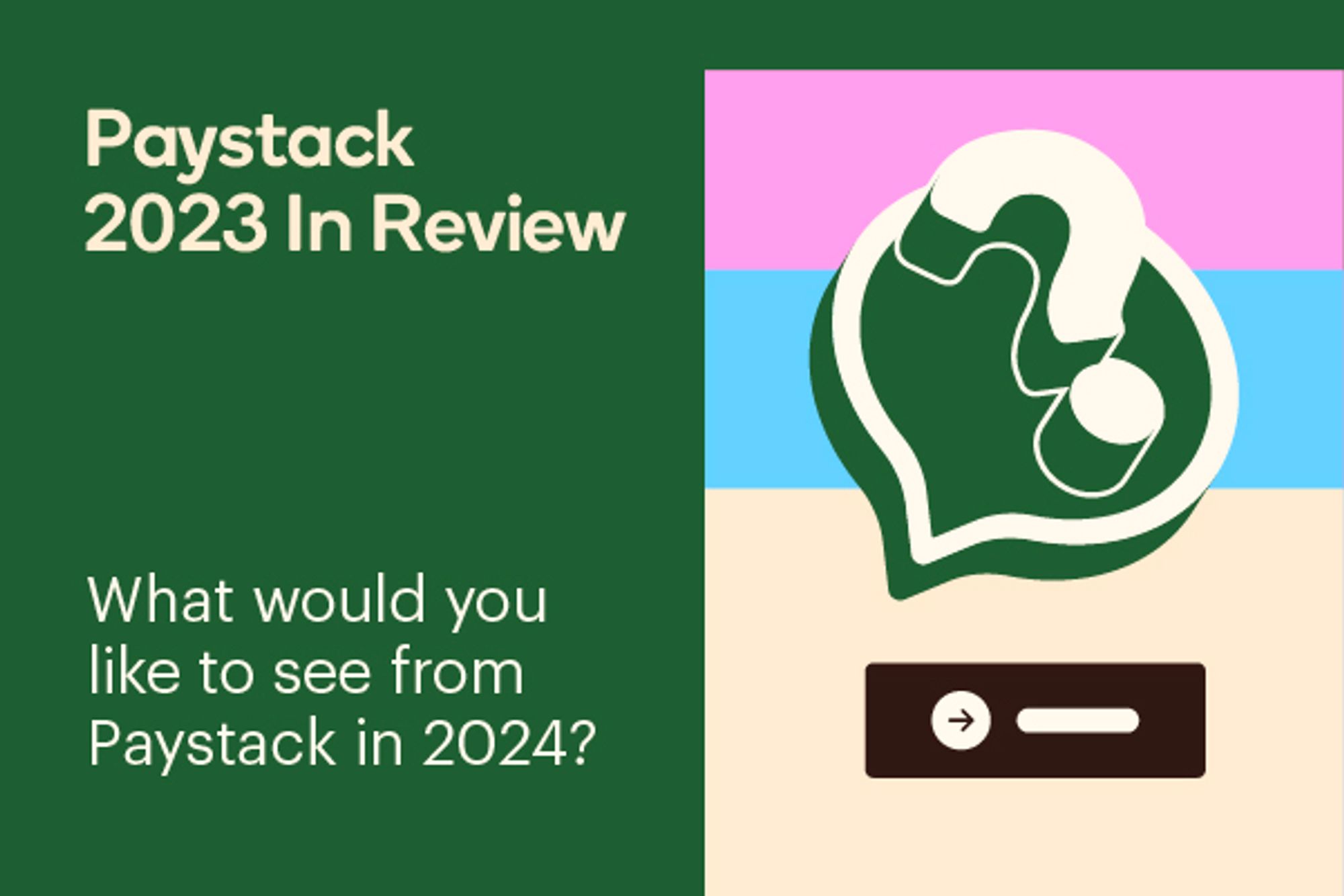

Good morning 
In 2023, Moonshot by TechCabal sparked a global conversation, tackling the continent’s most pressing challenges with innovative solutions.
This documentary dives into the heart of Moonshot 2023 and gives a glimpse of what’s to come in Moonshot 2024.
Watch the full documentary and see how Moonshot is changing Africa.
Banks have started paying their ₦200 billion debt to telcos
Since 2019, the debate between banks and telcos on who should pay the debt incurred from Unstructured Supplementary Services Data (USSD) banking has raged on.
Banks say telcos are not transparent enough about their pricing and the accruing interest on the principal sum; telcos, sensing opportunity, have blown hot about shutting down USSD services.
In another turn of events, banks have begun paying the ₦200 billion ($132,000,000) debt they owe telco companies—however, payments have been slow.
USSD banking remains an important payment channel, as it accounted for ₦4.494 trillion ($2.9 billion) in transaction value from over 516 million transfers made in 2022, according to data from the Central Bank of Nigeria (CBN). This underpins its utility among Nigerians, still.
But there’s still a kicker: With smartphone penetration billed to reach 143 million Nigerians by 2025, and mobile internet penetration reaching 42.19% by the end of 2024, the reports have spawned questions about the place of USSD banking in Nigeria’s payments landscape—given the country’s younger, tech-savvy population who prefer e-payment methods.
Few experts have argued USSD’s relevance to banking; prominently so, Seun Agbaje, Group CEO of Guaranty Trust Holding Company (GTCO), said, “USSD is a clumsy technology. It’s not state-of-the-art. The best way to have financial inclusion is to reduce the cost of data so that data becomes more affordable. Then we can use what is a superior technology.”
There might be one argument for USSD though. As unreliable mobile internet threatens online payments, USSD banking’s simplicity could be a valuable backup. This standoff is a lose-lose situation, potentially blockading financial inclusion efforts and innovation in mobile banking.
It’s a cautionary tale for regulators: Stay ahead of technological trends or risk presiding over expensive, drawn-out conflicts.
Process payments smoothly with Moniepoint

And we’ll have processed almost 5,000 more by the time you’re done reading this. Your business payments can be one of them. Click here to sign up.
Ghana’s debt restructuring will finally secure $360 million in funding
After extensive talks, Ghana’s institutional bondholders have agreed to a 37% reduction on their principal and extend bond maturities until March 2027.
Ghana’s story has been one of grit as the country continues to rebound from its economic slump in 2022 where it defaulted on most of its $30 billion external debt. The country’s progress with creditors now paves the way for securing the $360 million tranche in International Monetary Fund (IMF) funding.
Zooming in on the deal: Ghana eurobond-holders are presented with two options: one is the “DISCO” bond option, where investors receive 5% interest rate on new bonds from January this year until July 2028, then 6% thereafter. The other is the “PAR” option, where investors will get 1.5% interest on bonds without any haircut.
Side bar: Eurobonds are external bond instruments denominated in a currency other than the local currency of the country or market in which the bonds are issued.
This agreement comes after the IMF rejected an earlier proposal in April for not meeting debt sustainability requirements. The current deal is expected to provide $4.4 billion in cash flow relief for Ghana during the IMF loan programme.
The deal follows a similar agreement between Zambia and its creditors in March to restructure $3 billion in eurobonds.
Since 2022, Ghana has rallied to improve its economic situation. The country’s economy grew by 2.9% in 2023, surpassing the IMF’s 1.5% estimate. This growth, coupled with the debt restructuring, aims to reduce Ghana’s debt-to-GDP ratio from 109% to 55% by 2028.
Issue USD and Euro accounts with Fincra

Create and manage USD & Euro accounts from anywhere. Fincra allows you to issue accounts to your users, partners & customers to collect payments without the stress of setting up and operating a local account. Get started today.
Takealot Group records $14 million loss
South Africa’s e-commerce giant, Naspers, has released Takealot Group’s annual results for the year-end, March 31, 2024.
The Takealot group which includes Takealot.com (an online retail store), Mr D (a food delivery and logistics operation), and Superbalist (fashion), recorded a loss of R252 million ( $14 million).
However, Mr D, the food delivery and logistics service, recorded a profit of R56 million ($3 million) for the first time with its gross merchandise value (GMV) increasing by 16%. Takealot.com saw a reduction in trading losses by R75 million ($4 million) and an increased gross merchandise value increased by 3% during the year.
The Takealot group’s combined sales revenue dropped slightly by 2% to $792 million compared to last year when its revenue dropped by 3%. It also recorded a drop in trading losses by $8 million, signalling it is getting closer to being profitable.
Naspers attributes the losses to higher operation costs as it opened new warehouses, installed diesel tanks to reduce the effects of the high cost of fuel, and tougher competition noting heavy investment into online shopping. Additionally, it noted Superbalist, which it acquired in 2014, was struggling due to global competitors from China, like Temu and Shein, that are offering really good prices.
The number of businesses selling products on their platform Takealot has reached over 10,000, yet it hasn’t been profitable since it was founded 15 years ago. Despite the former CEO stating the e-commerce giant will record profits in 2021, it has only reduced its losses significantly between 2019 and 2021. It recorded $22 million in losses in 2023, triple the $7 million in losses in 2022.
What do you want to see from Paystack in 2024?

Paystack would love to hear from you! Let us know what improvements or new features you’d like to see from Paystack in 2024. Share your wishlist here →
Flutterwave lays off 30 employees
When Flutterwave paused its Barter virtual card services in February 2022, thousands of users who relied on the service took to the internet to share their displeasure. “Since Barter by Flutterwave shutdown their Virtual Dollar Card issuance, paying online has become a nightmare for me,” one user tweeted. “Flutterwave suspending their barter dollar card is going to be an issue,” another said.
Other customers were so sure that the move would be shortlived due to Barter’s significance in Flutterwave’s product ecosystem. “Barter alone is a beast,” this product manager said.
The truth, however, is far from it. As far back as 2018, co-founder Iyin Aboyeji has noted that Barter made up only about 1% of Flutterwave’s $2 billion in transactions. As of 2023, a year after Barter was blocked, the company’s biggest revenue driver was its enterprise services with other consumer-focused products taking the backseat. So it didn’t come as a surprise, to anyone who was really listening, when the company announced Barter’s death this year to double down on its enterprise and remittance business.
In that same sense, it also shouldn’t surprise that the company is laying off 30 employees whose roles have become redundant in its shift to enterprise.
The layoffs, which were announced yesterday, affected employees who worked on the products the company no longer offers, according to a report by TechCabal. The company stated it would provide a severance package of three months’ salary, tailored to the employee’s location, and compensate for any unused leave days.
In April, CEO, Gbenga Agboola noted that Flutterwave is strategically positioning itself for long-term success in Africa,” with a ready IPO, the right corporate governance in place and right infrastructure to ensure the company operates well”.
It’s a lesson in following the money for everyone. The most popular products aren’t always the most profitable ones. Over the past two years, as a biting funding winter has led to more shutdowns, we’ve seen many online darlings—admittedly a vanity metric for success—shut down, proving “likes” don’t pay the bills. Companies prioritising profitable products are the ones making headway.
Calling all business owners!

What keeps you up at night? Is it salary payments, high cost of distribution, or the rising cost of raw materials?
Attend Growing with Sparkle Webinar 2.0. Renowned economist B.J Rewane and Omon Anenih, Founder of Dew Centre, will share tips to help you navigate these challenges and maintain a steady cash flow. Click to register!
- Big Cabal Media – Senior Video Producer, Deputy Editor (Zikoko), Event Production Assistant, Client Account Manager – Nigeria
- TechCabal – Features Writer, Features Director – Africa
- Leadway Assurance – Relationship Officer – Lagos, Nigeria
- Kuda Bank– Content Writer – Lagos, Nigeria
- Quidax – Market Operations Intern, Revenue Assurance Analyst – Lagos, Nigeria
- Carry1st – Growth Manager – Lagos, Nigeria
- Bumpa – Senior Mobile Engineer, Senior Backend Engineer – Nigeria (Remote)
- Comiblock – SEO Specialist, Data Engineer, Machine Learning Engineer – Lagos, Nigeria
Here’s what we’ve got our eyes on
Written by: Emmanuel Nwosu & Towobola Bamgbose
Edited by: Olumuyiwa Olowogboyega & Timi Odueso
Want more of TechCabal? Sign up for our insightful newsletters on the business and economy of tech in Africa.
- The Next Wave: futuristic analysis of the business of tech in Africa.
- Entering Tech: tech career insights and opportunities in your inbox every Wednesday at 3 PM WAT.
- TC Scoops: breaking news from TechCabal
P:S If you’re often missing TC Daily in your inbox, check your Promotions folder and move any edition of TC Daily from “Promotions” to your “Main” or “Primary” folder and TC Daily will always come to you.





Comments
Post a Comment